In face of supply disruptions, Korea, India must work together
New Indian ambassador to Korea says evolving bilateral ties, consistent policies makes India lucrative investment destination for Korean companies
Published : 2023-01-31 14:13:17
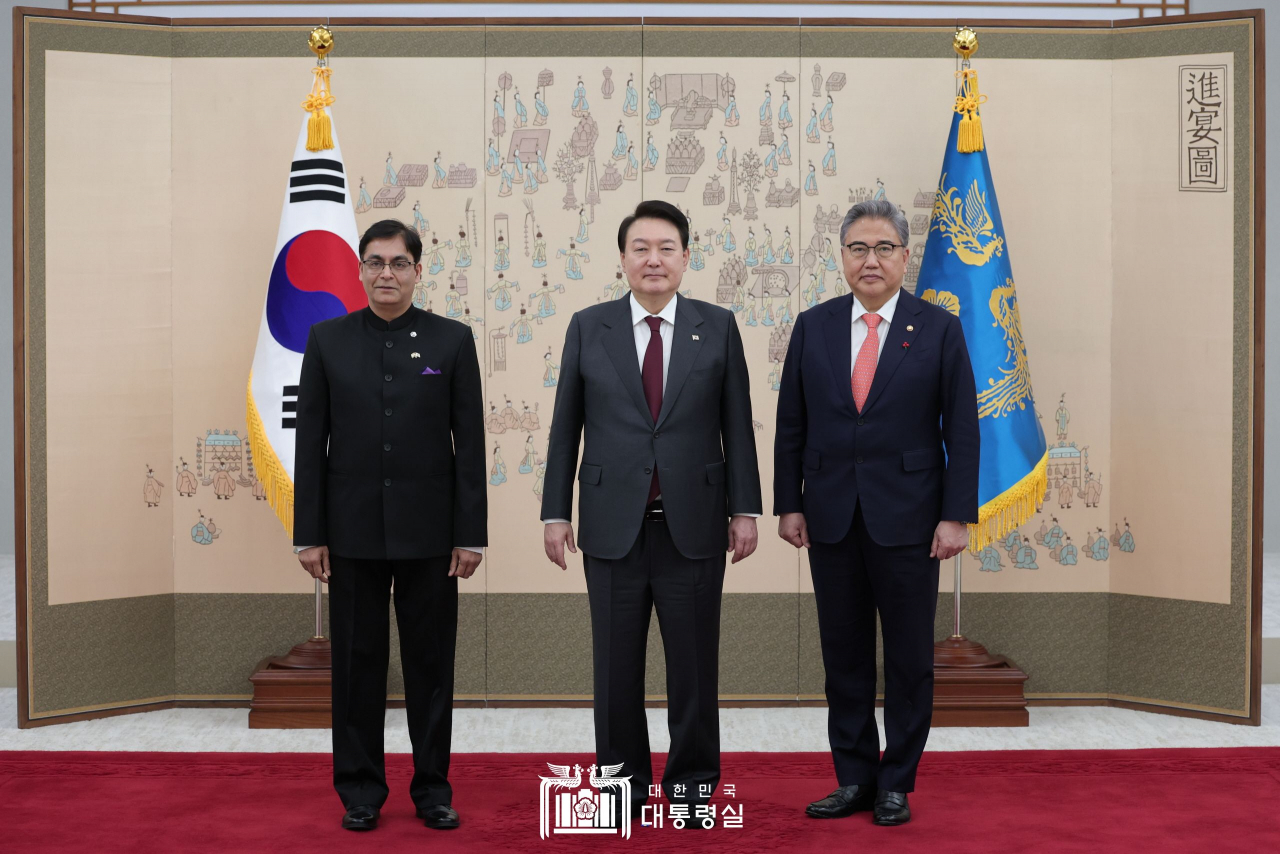
India is willing to collaborate with South Korea to resolve supply chain disruptions caused by the COVID-19 pandemic and other geopolitical conflicts, said Amit Kumar, Indian ambassador to Korea, on Friday, stressing the 50 years of bilateral ties and deep trust building towards the future.
Global geopolitical conflicts have exposed the acute vulnerability of supply chains and the risks of dependency on one country, Kumar told The Korea Herald, noting that "India and Korea must work together to seize emerging opportunities."
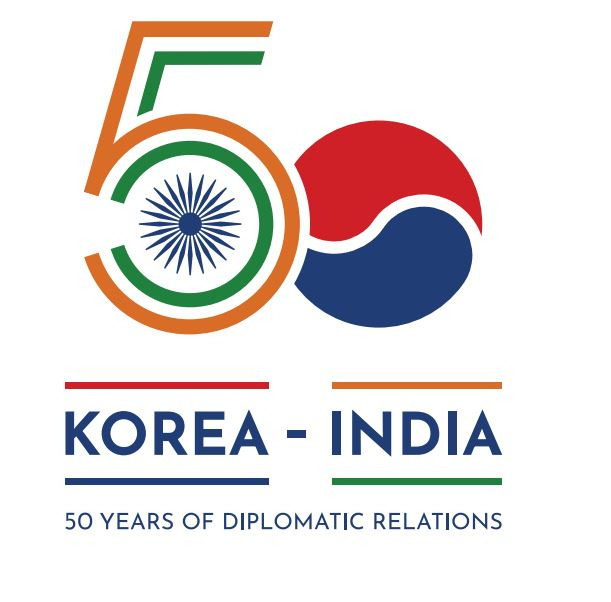
Kumar introduced India's policy campaign, known as Atmanirbhar Bharat Abhiyan, which aims to make India a trustworthy supply chain hub. Kumar said India is in discussions about strengthening its manufacturing sector while also activating its role in global supply chains at the same time.
He presented India’s outlay of $46 billion for Production Linked Incentive schemes across 14 key sectors, including semiconductors, electronics, pharmaceuticals, advanced chemistry cells, food processing, and medical devices, among others.
According to Kumar, the PLI scheme would generate six million new jobs and a surplus of $400 billion in gross domestic production.
"Korea has advanced capabilities in life sciences, automobiles, EV batteries, and electronics manufacturing," said Kumar, urging Korean companies to utilize incentives offered by India to expand production capacities and diversify supply chains.
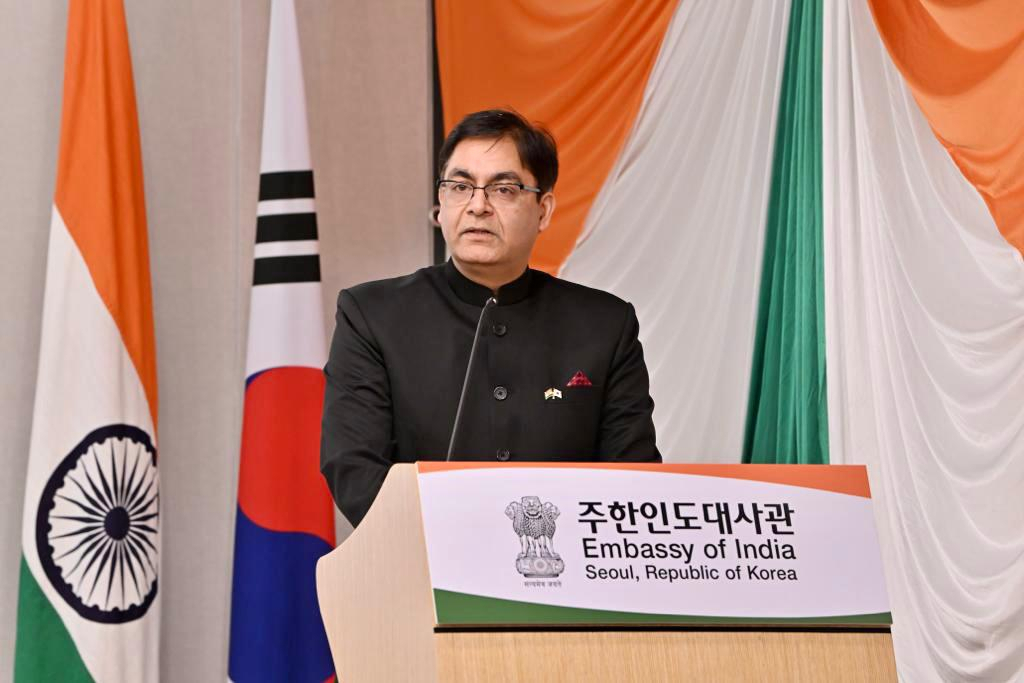
Kumar also hoped to conclude the negotiations for the Comprehensive Economic Partnership Agreement upgrade as soon as possible.
"India is seeking more investments from Korean companies," said Kumar, referring to India-Korea bilateral trade that is thought to have reached approximately $28 billion in 2022, despite COVID-19.
"Our goal is to achieve $50 billion in bilateral trade by 2030," he stated.
He urged Korean companies to invest in the Internet of Things, or IoT, 5G, AI technology, startups, green hydrogen, climate change, and electric vehicles.
Kumar asked Korean companies for bolstering partnerships in big data, green economy, manufacturing, construction, infrastructure, renewable energy, electric mobility, pandemic and healthcare management, the solar alliance, and disaster relief infrastructure. The latest investment made by a Korean company in India was Samsung Electronic which built its smartphone plant, the largest mobile manufacturing complex, in Noida, near Delhi, in 2019.
According to Kumar, India, the world ‘s fifth largest economy, is projected to grow by approximately 7 percent in 2023.
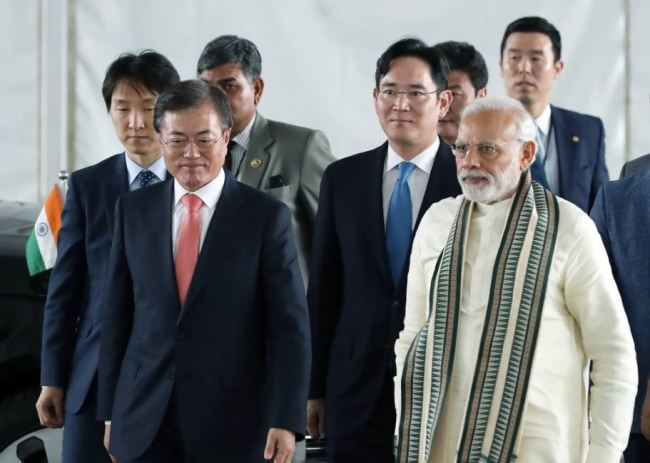
"Over the next 10 years, India's economy will grow from $3.4 trillion to $8.5 trillion," Kumar predicted, citing recent factors such as consistent structural reforms, deregulation, simplification of rules on foreign direct investment, improvement in physical and digital infrastructure, and advanced social and financial inclusion such as enabling sustainable growth.
According to Kumar, ease of doing business, innovation, and competitiveness rankings led to FDI inflows of $340 billion over the last five years and $81 billion in 2022.
"Enormous changes are underway in India," he said, pointing to the emergence of some 70,000 registered startups in the country.
"Unlike other economies where private networks have taken root, India has led the world in building public digital infrastructure," said Kumar.
50 years of friendly ties
Kumar recalled the contributions of the Indian medical contingent during the Korean War and the custodian forces of India within the framework of the Neutral Nations Repatriation Commission.
The NNRC was created in 1953 to repatriate thousands of prisoners of war.

According to the Indian Embassy, custodian forces from India, comprising 5,230 personnel led by Maj. Gen. S.P.P. Thorat, came to Korea and oversaw the complex and sensitive issue of the repatriation of over 25,000 POWs.
Kumar said that since 2023 marks the 70th year of the armistice agreement on the Korean peninsula, the Indian Embassy looks forward to highlighting India’s role in the Korean War and armistice agreement.
India supported the UN Security Council resolution and extended humanitarian support by deploying the 60 Para Field Ambulance medical unit and treating over 222,000 patients, including civilians, during the Korean War. It earned numerous awards and gestures of appreciation from the Korean government, the UN, and other agencies for its efforts.

The unit was commanded by A.G. Rangaraj, an Indian lieutenant colonel.
Kumar also praised the recently expanded India-Korea defense cooperation and the joint production of K9 by Korean and Indian defense companies.
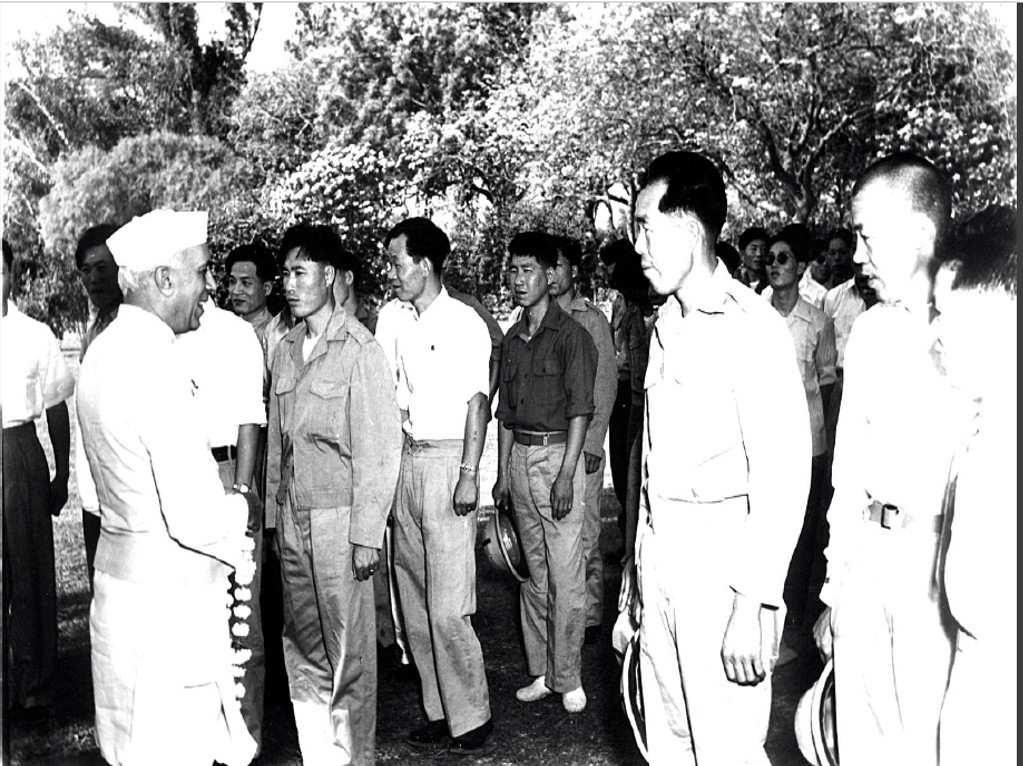
India and Korea participated jointly in multinational naval exercises in 2022, said Kumar.
India and Korea are continuing the service-to-service talks for the Army, Navy, and Air Force, he said.
G20 meeting in India
Meanwhile, the ambassador invited South Korean President Yoon Suk Yeol to the G20 Leaders' Summit, which will be held in India on September 9-10, 2023.
"India looks forward to receiving ministers, parliamentarians, officials, civil society representatives, and academics from Korea for G-20 meetings throughout 2023," added Kumar.
Meanwhile, Korea and India agreed to upgrade the Special Strategic Partnership signed during the Former President Park Geun-hye's state visit to India in 2014.
The agreement was signed during the Indian Prime Minister Narendra Modi's visit to Korea in 2015.
During phone talks held on Monday evening, South Korean Foreign Minister Park Jin and his Indian counterpart, Subrahmanyam Jaishankar, agreed to promote bilateral cooperation in economy, development cooperation, people-to-people and cultural exchanges.
Korea is an essential partner in India’s "Act East" strategy, and both countries recognize the value and contribution of bilateral cooperation for peace, stability and security in the Asia Pacific Region.
India's Act East Policy aims to promote economic cooperation, cultural ties, develop strategic relationship and institutional mechanisms for dialogue with countries in the Asia-Pacific region.
The policy, which was originally conceived as an economic initiative, has gained political, strategic and cultural dimensions including the establishment of institutional mechanisms for dialogue and cooperation.
Foreign Minister Park congratulated India for accepting the presidency of the G-20 international cooperation forum this year and expressed appreciation for India inviting him to the G-20 foreign ministers' meeting.
http://www.koreaherald.com/common/newsprint.php?ud=20230131000551